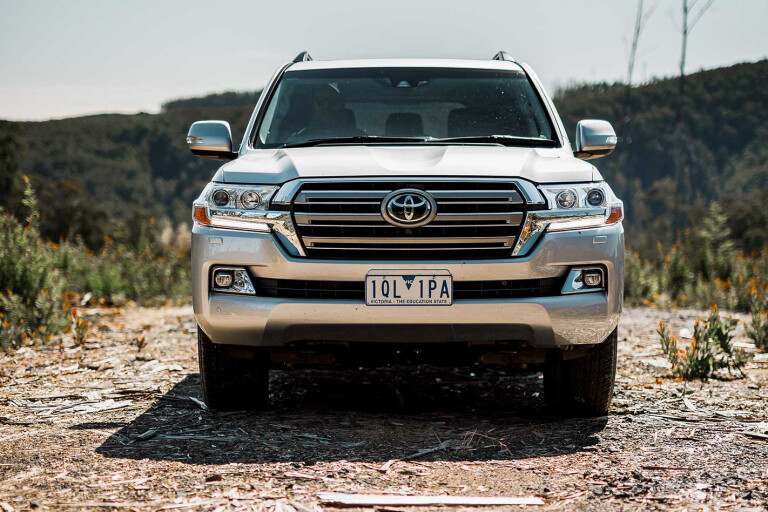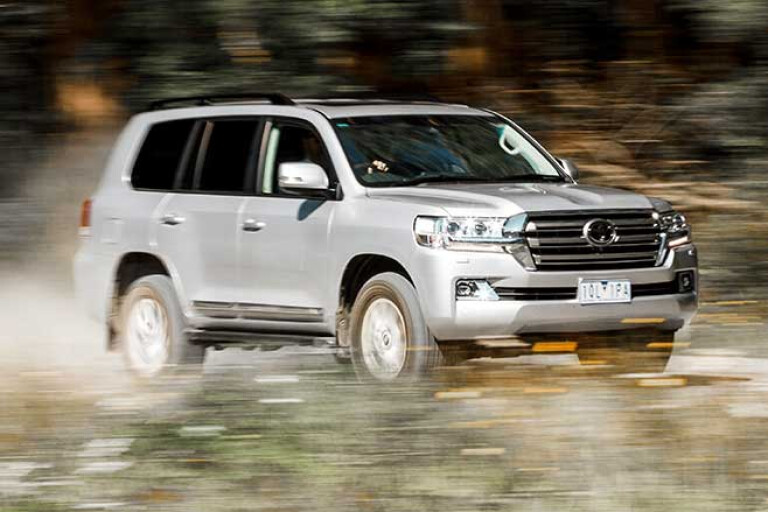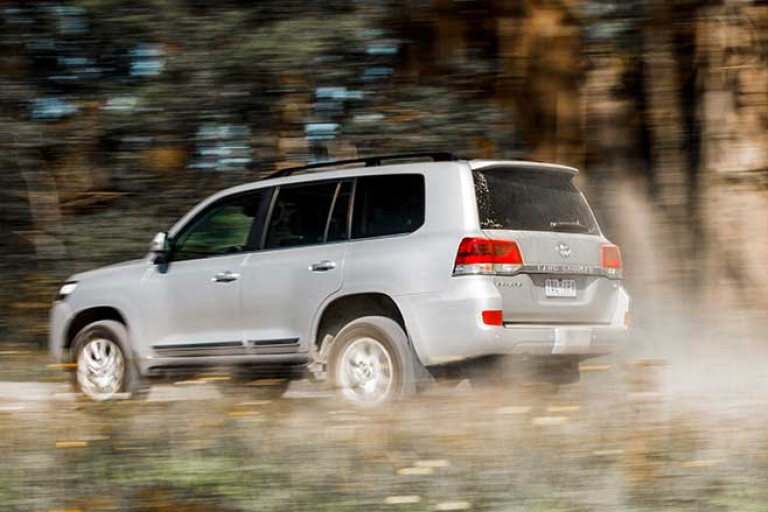
IF YOU think the replacement for the 200 Series LandCruiser is a long time coming, then you’re right. In round numbers, the 60 Series lasted 10 years, the 80 Series lasted seven years and the 100 Series nine years, while production of the 200 ran for 14 years, before halting recently.
The fact that Toyota has stopped making 200s indicates the ‘300 Series’, for want of a better name, is imminent. Given the size of the global market for the 200 and its offshoot the Lexus LX570, and the central part that the LandCruiser name plays in the Toyota brand, it couldn’t be any other way. One would think!
So why has Toyota been so slow in rolling out the 300 Series given as early as 2015 it was already testing 300 Series prototypes in Australia, amongst other things benchmarking them against a Range Rover and a Range Rover Sport?

Well bottom line is in fact ‘the bottom line’ with the 200 selling well-enough – thank you – due in part to the lack of competition from the Nissan Patrol in those markets that favour diesel, Australia being at the forefront. From a moneymaking perspective (and car companies only exist to make money) keeping the 200 ticking along has been very much a ‘don’t fix what isn’t broke’ approach.
Toyota is obviously also well-aware of the unfavourable spotlight that the spectre of climate change has thrown on internal combustion engines and has no doubt been happy take the time to see where global sentiment and, more importantly, future exhaust emissions legislation is heading. Bigger and heavier passenger vehicles, such as the 200/LX570, are of course more sharply under climate-change focus than smaller and lighter cars.
Predictably, given Toyota’s history with petrol-electric hybrids, which now dates back near-on a quarter of a century to when the Prius first appeared, it appears that the new petrol powertrain in the 300 will in fact be a petrol-electric hybrid powertrain. To cover the LX570’s replacement as well, two petrol-electric hybrids, one naturally aspirated and one turbocharged seems likely.
So how will a petrol-electric hybrid powertrain work in a big 4x4 wagon and will it be any good off road?

On the negative side, the obvious problem is that both the electric motor, and the battery that’s central to the hybrid system take up room. On current hybrid cars the batteries are in fact significant in size. Room for the battery will invariably compromise the petrol-tank size and/or the luggage space even if the electric motor can be accommodated more easily by being integrated into the transmission. Both the hybrid battery and electric motor will also add weight, which is never a good thing with a 4x4 (or any car for that matter).
On the positive side, and it could be major positive, the off-idle and low-rpm assistance provided by the electric motor should be just the ticket for low-range crawling on rocky and steep tracks and the like. Current petrol-electric hybrids all have the electric motor assisting the internal combustion engine in initial takeoff and at low speeds given electric motors produce full torque from zero revs.
On High Country tracks where you invariably climb a hill only to descend down the other side and then climb another, the hybrid’s ability to recapture when descending a hill some of the energy just spent on climbing the same hill will also be a major bonus. Don’t be surprised if a petrol-electric 300 comes close or even matches the fuel economy of a 200 diesel on High Country tracks. All will depend on the efficiency and of the hybrid system.
Speculation has it that the petrol-electric hybrid 300 Series won’t in fact be a plug-in hybrid, which will disappoint those rural folk who have plenty of roof area on their sheds for solar panels, as solar panels equate to free ‘fuel’ for a plug-in hybrid (or a full EV) once the installation costs are paid.
And what about a 300 Series diesel you ask? Don’t worry, there will be one of them too.

COMMENTS